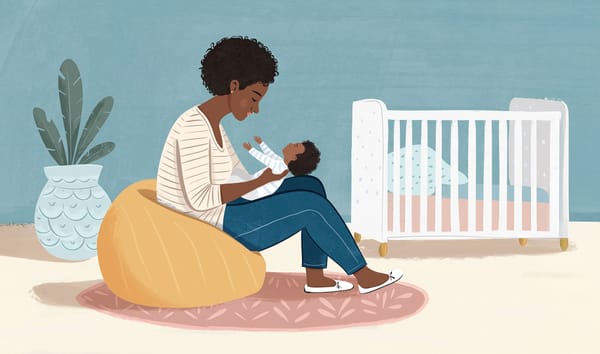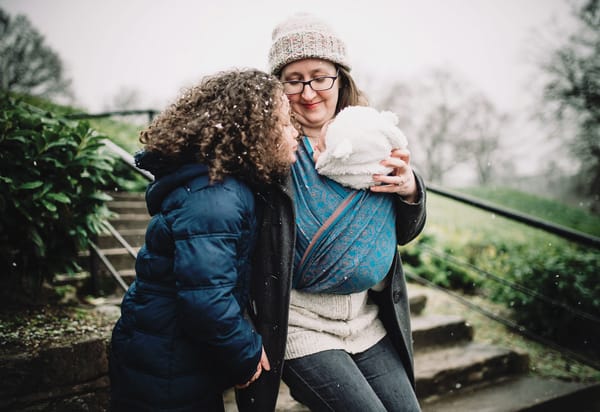Suvi Mahonen encourages new parents to set strong boundaries and carve out sacred space during the postpartum period. She believes this can contribute to long term mental health for parents and child
No matter how many photos of your adorable bundle you post on Instagram, every friend and relative living nearby wants to experience your baby for themselves. After all, cradling a newborn does more than merely making us clucky. It touches us to the core. It reminds us that miracles exist. And under normal circumstances, visitors can be fun. But having a new baby is not normal circumstances and visitors can rapidly change from comforting fun to imposing nuisance.
Art of Nurture
Midwife and bestselling author of parenting books, Kathy Fray, says rest is a huge priority for a new mother. “Non-stop visitors can have an enormous negative effect on the establishment of breastfeeding and the mother’s recovery, and can potentially be a risk factor for postnatal depression,” she says. “There is a whole ‘art’ to helping a new mother do what she needs to do, to have the uninterrupted peace to simply sleep and feed her baby – which is all she should be doing in the first week.”
Fray has conducted countless postnatal visits with mothers who are exhausted from well-meaning visitors and says that first-time mothers tend to suffer the most. “They feel such obligations to be ‘on show’ for all the family,” she says.
I felt that same pressure when my own daughter was born. I was comfortable staying in my pyjamas when it was just my husband and myself at home, but if a friend or family member was coming to visit,
I not only felt obligated to do my hair and put on a dress, but also to serve refreshments.
Much of this pressure is self-inflicted, though, and you shouldn’t let anxiety about your appearance, or the state of your house, prevent visitors from coming around if that is what you want.
Setting Boundaries
“The people who come to visit you are there to show their support and love for you and your family. Not to look for fault,” says clinical psychologist Dan Martin. “Most people understand that you may have been up multiple times per night with a crying little one. Cobwebs in the corner of the lounge aren’t the highest priority at this time.”
Nevertheless, setting healthy visitor boundaries is essential and it is something that a couple should begin early in a relationship, and not just when they become parents, says Martin.
“You may want to have a discussion with your partner so you are clear who is the ‘spokesperson’ to different family members,” he advises. “Your nuclear family needs to be able to start making its own rules and traditions.”
Fray concurs and suggests that all new mothers-to-be tell their family and friends about their preferred visitor boundaries in advance. “By the time women are having their third baby, they can get staunchly proactive about putting their and their baby’s own needs first, and they put their foot down to excessive visitors,” says Fray.
Fray also suggests that you tell your friends and family that you plan to shut down from social media, emails and texts as much as possible, so you can really be present with your new baby for those “first precious days and weeks”. But, like everything, moderation is best.
And setting visitor boundaries doesn’t mean you have to miss out on the satisfaction of seeing that amazing picture of your three-week-old daughter gazing up at you with her sleepy blue eyes become the most liked photo on your Instagram account.
Nor does it mean missing out on that invaluable moment when your sister or best friend comes around and their face melts when they see your newborn baby for the very first time.
Now that is something an Instagram like can’t replicate, no matter how hard Mark Zuckerberg tries.
Suvi is a full-time mum and part-time journalist combining writing and photography with raising her daughter. Find her work at redbubble.com/ people/suvimahonen







